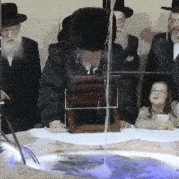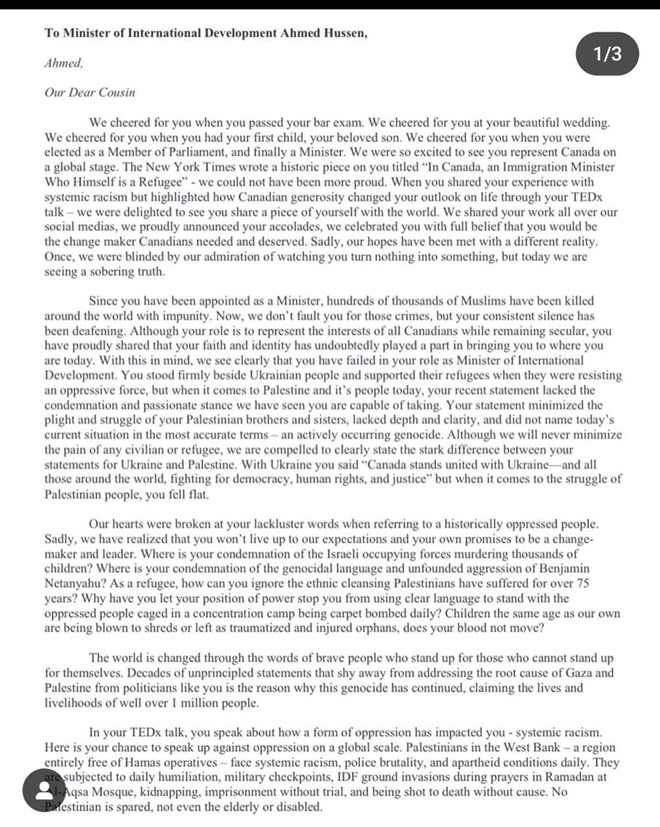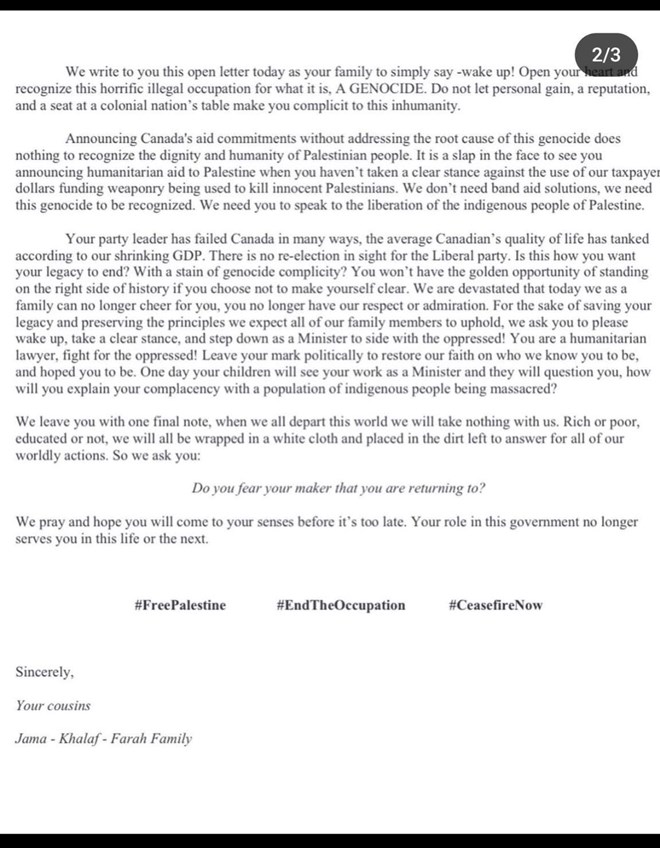- gradenko_2000
- Oct 5, 2010
-

HELL SERPENT
-
Lipstick Apathy
|
well shucks if Hamas is involved in the UNRWA then that means they're a party that participates in the development of civil society and aren't merely a militant group, right?
|
 #
?
Jan 29, 2024 02:55
#
?
Jan 29, 2024 02:55
|
|
- Adbot
-
ADBOT LOVES YOU
|

|
|
#
?
Jun 7, 2024 23:09
|
|
- ContinuityNewTimes
- Dec 30, 2010
-

Я выдуман напрочь
|
The real scandal is that some of UNRWA isn't Hamas.
|
 #
?
Jan 29, 2024 02:58
#
?
Jan 29, 2024 02:58
|
|
- I said come in!
- Jun 22, 2004
-

|
UNRWA did nothing wrong. Everyone should be involved in helping bring about the destruction of Israel.
|
 #
?
Jan 29, 2024 03:09
#
?
Jan 29, 2024 03:09
|
|
- carcinofuck
- Apr 18, 2001
-
pink floyd still sucks
|
um only incidental to this read but I was reading this cradle article
https://thecradle.co/articles/how-pakistan-and-iran-neatly-tackled-their-terror-threats
quote:With a combined force of 1,250,000 active-duty personnel and 900,000 reserved forces, as well as untold missile and nuclear arsenals, Iran and Pakistan would present a formidable military force in West Asia if they collaborated more closely; hence the use of intermediaries like Jaish al-Adl by hostile states to keep the two brotherly nations at odds.
First of all that's quite a fantasy 'if they mated' team and sounds cool and all, but second what do they even mean by 'keep the two nations at odds'? I mean I assume there are plenty of strategic wedges driven into many countries' relations by their other neighbors and the empire, but is there any real 'brotherly nations' history here?
Further in it says:
quote:...there exists a deeper level of understanding on the matter between the Iranian and Pakistani governments, as the two states have exceptionally strong relations and engage in ongoing communication. carcinofuck has issued a correction as of 03:23 on Jan 29, 2024
|
 #
?
Jan 29, 2024 03:14
#
?
Jan 29, 2024 03:14
|
|
- 30.5 Days
- Nov 19, 2006
-
|
Hamas is about 1% of Gaza residents and only 0.02% of unrwa employees so I think we need to ask hard questions about laws against anti veteran discrimination in Gaza.
|
 #
?
Jan 29, 2024 03:54
#
?
Jan 29, 2024 03:54
|
|
- Neurolimal
- Nov 3, 2012
-

|
https://twitter.com/ytirawi/status/1751724870725943764
Finally discovered the Egyptian red line
|
 #
?
Jan 29, 2024 04:00
#
?
Jan 29, 2024 04:00
|
|
- carcinofuck
- Apr 18, 2001
-
pink floyd still sucks
|
Israel loses control of its borders
quote:Israel once reigned supreme on the back of some immovable narratives: widely spun myths of a "promised land," a "land without a people," the "only democracy in the Middle East," and the “only secure place for Jews in the world.” Today, those lofty soundbites lie in tatters, with the occupation state reeling from an unprecedented blow to its foundational ideas.
This transformation has unfolded with unexpected intensity since the 7 October Al-Aqsa Flood resistance operation and Israel's devastating, genocidal war on Gaza.
But it is not just the challenge of narratives that has Israel on its back feet. For the first time in its 76-year history, Israel's entire security calculations have been turned upside down: the occupation state is today grappling with buffer zones inside Israel. In past wars, it was Tel Aviv that established these “security zones” inside enemy territory — advancing Israel's strategic geography, evacuating Arab populations near their state border areas, and fortifying its own borders.
This shift can be attributed to various factors, including vulnerabilities within the so-called "Arab Ring States" (Egypt, Jordan, Syria, and Lebanon). Throughout its history, Israel has consistently exerted military and political dominance, enforcing security measures on neighboring states, with the unconditional backing of allies like the US and Britain.
Israel’s new border realities
But in this current war, Tel Aviv is slowly understanding that the equations and calculations of military confrontation have fundamentally changed — a process that began in 2000 when the Lebanese resistance, Hezbollah, forced Israel to withdraw from most occupied territories in southern Lebanon.
Today, Israel is horrified to find itself retreating from direct confrontation lines with its arch-enemies in Gaza and Lebanon. The formidable capabilities of the resistance now include drones, rockets, targeted projectiles, tunnels, and spanking new shock tactics, casting doubt on the feasibility of Israeli settlers remaining safe in any of Israel's border perimeters.
There is now one common refrain among settlers in the north and south of occupied Palestine: “We will not return unless security is restored on the border.”
But prospects for their return appear elusive at present. The Israeli Defense Ministry, which pledged a swift and decisive war to safeguard its settlers over 100 days ago, is now actively devising plans to shelter approximately 100,000 people along the northern border, deeper inside its territory. This measure could involve evacuating settlements that may come under fire during any future military escalation with Hezbollah in Lebanon.
This situation implies three critical outcomes: any immediate return of settlers remains unlikely, additional evacuations are anticipated, and numerous Israeli families - in the interim - may establish permanent settlements in other, more secure locations at a much further distance from the borders with southern Lebanon and the Gaza envelope.
Failed objectives and the northern front
Preliminary reports from settler councils in the north assessed settler “displacement” to be around 70,000 in the initial weeks of the conflict. Subsequent reports, however, suggest a vastly higher figure of approximately 230,000.
Against this backdrop, Hezbollah Secretary-General Hassan Nasrallah emphasized a crucial point in his 3 January speech. He referenced Israeli Defense Minister Yoav Gallant's concern that Israelis are not only reluctant to reside in the border regions, but that their apprehension about remaining in any part of Israel will also likely rise if Tel Aviv's war fails to achieve its stated objectives.
Indeed, since 7 October, a significant toll has been exacted on Israeli forces, with 13,572 "soldiers and civilians" wounded in the battles in Gaza and along the northern border with Lebanon, as reported by Yedioth Ahronoth. One suspects those numbers may be underreported. Skepticism has recently grown over the accuracy of the Israeli Ministry of Health's data, with various experts, independent sources, and media investigations suggesting a considerably higher casualty count. The IDF Handicapped Organization, for example, estimates that approximately 20,000 individuals have been disabled in the ongoing war — a number much higher than the health ministry's findings.
The secrecy surrounding Israeli casualties is particularly evident on the Lebanese war front, where data is virtually nonexistent, and Tel Aviv's military censorship tightly controls all information flows. This leads to a critical question regarding Israel's ability to establish strategic "border" equations as a compensatory measure for what appears to be a military and political setback in achieving its stated war goals — which include the elimination of Hamas and the release of all captives.
Moreover, doubts arise about Israel's capacity to wage a major war in the north given its clear shortcomings in its southern military campaign, in which it faced heavily besieged adversaries with multiple vulnerabilities. The Lebanese resistance, in comparison to its Gazan counterparts, boasts considerable and many unknown military capabilities, which it can exercise from within a sovereign state that is neither besieged nor landlocked. Furthermore, Hezbollah, which singlehandedly routed Israel from its territories in both 2000 and 2006 — makes it plain that it has thus far revealed and utilized only a fraction of its new military capabilities.
Decolonization in progress
In November, Hezbollah's introduction of the Burkan missile, a domestically-made weapon with a range of up to 10 kilometers and destructive power of 500 kilograms of explosives, adds a potent dimension to the confrontation.
While Hezbollah has primarily targeted Israeli military barracks and troop gatherings with the Burkan, hundreds of guided missiles such as Kornet and Katyusha rockets have been employed with precision against specific targets within empty residential settlements, extending up to 10 kilometers in geographic depth from Lebanon's border.
As of the onset of 2024, Hezbollah has conducted over 670 military operations against all 48 Israeli outposts, spanning from Naqoura in the west to the occupied-Shebaa Farms in the east, along with 11 rear military positions.
This is a major advancement in the Lebanese resistance's border strategy. For 15 years — from 1985 to 2000 — Israel struggled to defend its "border strip" in southern Lebanon. Today, it faces many hundreds of attacks on its positions in northern Palestine, but fears opening a second war front that could complicate its already militarily draining Gaza campaign.
The so-called "defense" line along the border with Lebanon is now heavily compromised. Deemed insufficient for safeguarding the hundreds of thousands of Israeli settlers in the north, the recently displaced residents are demanding assurances about the future safety of that zone and their ability to return.
In December, the head of the Upper Galilee Regional Council revealed that the Israeli government had effectively created a buffer zone approximately 10 kilometers wide by evacuating towns in the north. This area, stretching from Mount Hermon in occupied Syria to Ras al-Naqoura, is reported to be nearly devoid of residents, with Israeli forces predominantly present.
At the so-called Kibbutz Manara border, a settler told Hebrew Radio North that 86 of the settlement's 155 homes had been completely destroyed by Hezbollah rocket fire, raising the question of whether settlers would even have homes to return to.
Even if Israel dares to launch a full-scale aggression against Lebanon, just as it has faltered in besieged Gaza for 17 years, it will not be able to guarantee its success in achieving its objectives on the Lebanese front.
A land of false promises
The days when Israel could impose security arrangements on its Arab neighbors through military force and political machinations are gone.
Previously, Israel attempted to establish a security strip inside southern Lebanon through operations like the 1978 "Litani Operation." This vision ultimately collapsed in 2000, with the occupation state's humiliating withdrawal from Lebanon.
Israel now seems to be revisiting this approach — via American intermediaries — aiming to clear the southern Litani of resistance factions by brandishing the threat of war against all of Lebanon. This is a perilous strategy, particularly given the precarious position of its army in Gaza.
Israel's tactics of bulldozing and bombing entire residential areas in the northern and eastern parts of the Gaza Strip, ostensibly to create a security strip with a depth of up to 2 kilometers, have hit a hard wall. Even its US ally has raised objections about the territorial delineation from Gaza, and the military efficacy of such measures. But more importantly, the Lebanese and Palestinian resistance appear prepped to mirror Tel Aviv's ploys by eliminating Israeli habitation in the Gaza envelope and northern Palestine.
‘Destroy our neighborhoods, and we will destroy yours.’ This is surely not a response expected by Israel, whose military and political leadership are unaccustomed to repercussions for their aggressions. This new tit-for-tat that the occupation state appears unequipped to counter only further highlights Israel's fragility and irreversible decline.
|
 #
?
Jan 29, 2024 04:07
#
?
Jan 29, 2024 04:07
|
|
- I said come in!
- Jun 22, 2004
-

|
Israel is slowly but surely collapsing.
|
 #
?
Jan 29, 2024 04:12
#
?
Jan 29, 2024 04:12
|
|
- Malloc Voidstar
- May 7, 2007
-

Fuck the cowboys. Unf. Fuck em hard.
|
https://www.aljazeera.com/news/liveblog/2024/1/29/israels-war-on-gaza-live-us-vows-to-respond-to-killing-of-troops?update=2656799
Four settlers arrested over suspected assault on truck drivers delivering aid
The Israeli police say they are investigating a reported assault by four Israeli settlers on two truck drivers delivering aid to Gaza.
According to a police statement, the drivers said the settlers tear-gassed them and threw rocks at their vehicles near Tlalim Junction in the Negev desert region in southern Israel.
Police arrested the settlers north of the Negev, finding tear gas and a pocket knife in their car. The four will be brought before a judge in Beer Sheva on Monday.
|
 #
?
Jan 29, 2024 04:13
#
?
Jan 29, 2024 04:13
|
|
- I said come in!
- Jun 22, 2004
-

|
https://www.aljazeera.com/news/liveblog/2024/1/29/israels-war-on-gaza-live-us-vows-to-respond-to-killing-of-troops?update=2656799
Four settlers arrested over suspected assault on truck drivers delivering aid
The Israeli police say they are investigating a reported assault by four Israeli settlers on two truck drivers delivering aid to Gaza.
According to a police statement, the drivers said the settlers tear-gassed them and threw rocks at their vehicles near Tlalim Junction in the Negev desert region in southern Israel.
Police arrested the settlers north of the Negev, finding tear gas and a pocket knife in their car. The four will be brought before a judge in Beer Sheva on Monday.
I bet they get a slap on the wrist and quietly told good job.
|
 #
?
Jan 29, 2024 04:30
#
?
Jan 29, 2024 04:30
|
|
- Weka
- May 5, 2019
-

That child totally had it coming. Nobody should be able to be out at dusk except cars.
|
um only incidental to this read but I was reading this cradle article
https://thecradle.co/articles/how-pakistan-and-iran-neatly-tackled-their-terror-threats
First of all that's quite a fantasy 'if they mated' team and sounds cool and all, but second what do they even mean by 'keep the two nations at odds'? I mean I assume there are plenty of strategic wedges driven into many countries' relations by their other neighbors and the empire, but is there any real 'brotherly nations' history here?
Further in it says:
quote:
What is noteworthy is that neither Iran nor Pakistan activated their air defense systems to intercept the rockets that struck their territory. Equally astonishing is the recent revelation that Iranian missiles targeted Iranian individuals, while Pakistani missiles exclusively targeted Pakistani Balochis, with no damage inflicted upon civilian and military facilities in either country.
Moreover, the stalemate was resolved through a mutual gesture of goodwill between the two neighbors within 48 hours, without the need for any external mediation. These aspects fuel suspicions that the events were premeditated.
Lol called it
Hamas is about 1% of Gaza residents and only 0.02% of unrwa employees so I think we need to ask hard questions about laws against anti veteran discrimination in Gaza.
Hamas is the civilian government of Gaza, duly elected. You are mistaking it for its military, the Qassam brigades.
|
 #
?
Jan 29, 2024 05:06
#
?
Jan 29, 2024 05:06
|
|
- MadSparkle
- Aug 7, 2012
-

Can Bernie count on you to add to our chest's mad sparkle? Can you spare a little change for an old buccaneer?
|
Yep. Can't wait to go there in spring and hear my stepmother conversationally fellating El-Sisi and his reasons for being so quiet for so long
|
 #
?
Jan 29, 2024 05:17
#
?
Jan 29, 2024 05:17
|
|
- carcinofuck
- Apr 18, 2001
-
pink floyd still sucks
|
so good
|
 #
?
Jan 29, 2024 05:19
#
?
Jan 29, 2024 05:19
|
|
- HazCat
- May 4, 2009
-

|
I bet they get a slap on the wrist and quietly told good job.
If a smart politician existed in Israel, they'd throw the book at these guys just so they have something to present in their report to SA in a month.
So, of course, you're absolutely correct.
|
 #
?
Jan 29, 2024 05:19
#
?
Jan 29, 2024 05:19
|
|
- Malloc Voidstar
- May 7, 2007
-

Fuck the cowboys. Unf. Fuck em hard.
|
https://www.nytimes.com/2024/01/28/world/middleeast/gaza-unrwa-hamas-israel.html https://archive.vn/0rYz3
Details Emerge on U.N. Workers Accused of Aiding Hamas Raid
|
 #
?
Jan 29, 2024 05:34
#
?
Jan 29, 2024 05:34
|
|
- Al-Saqr
- Nov 11, 2007
-

One Day I Will Return To Your Side.
|
Egypt likes to talk alot and lie so i wouldnt trust them.
|
 #
?
Jan 29, 2024 05:45
#
?
Jan 29, 2024 05:45
|
|
- Al-Saqr
- Nov 11, 2007
-

One Day I Will Return To Your Side.
|
ANY MORALLY CORRECT AND JUST PERSON WOULD AID HAMAS, THE UN SHOULD JUST JOIN HAMAS
gently caress EVERYONE ELSE, THE WEST ARE SUBHUMAN NAZIS
|
 #
?
Jan 29, 2024 05:46
#
?
Jan 29, 2024 05:46
|
|
- Ramrod Hotshot
- May 30, 2003
-

|
In an incredibly roundabout way I'm optimistic that since US sentiment (if not policy, other than the Afghanistan pullout) has squarely turned against "forever wars", now that Israel is in one (i.e. the US is, therefore, in one too), Americans are going to turn against the Israeli relationship.
|
 #
?
Jan 29, 2024 05:48
#
?
Jan 29, 2024 05:48
|
|
- gradenko_2000
- Oct 5, 2010
-

HELL SERPENT
-
Lipstick Apathy
|
quote:Two Western officials confirmed on the condition of anonymity that they had been briefed on the contents of the dossier in recent days, but said they had not been able to verify the details. Although the United States has yet to corroborate the Israeli claims itself,
quote:The dossier said that Israeli intelligence officers had established the movements of six of the men inside Israel on Oct. 7 based on their phones; others had been monitored while making phone calls inside Gaza during which, the Israelis say, they discussed their involvement in the Hamas attack.
quote:But to its critics, including many Israelis, the agency is an obstacle to resolving the conflict. Its very existence, they say, prevents Palestinian refugees from integrating into new communities and stokes their dreams of one day returning to what is now Israel — a goal that Israel says it will never allow.
quote:This is not the first time the United States has cut off money to the U.N. agency. The Trump administration suspended aid as part its efforts to pressure the Palestinian leadership to stop demanding that refugees be allowed to return to Israel.
quote:Israeli officials themselves were concerned on Sunday about whether their accusations might in the end make their own position more difficult, according to three officials involved in the discussion. A collapse in the delivery of services to Gaza could force Israel to shoulder a greater role in running aid distribution — a role it does not want.
Reports about the accusations against the aid workers came on the same day that the International Court of Justice issued an interim ruling on accusations of genocide that have been leveled against Israel by South Africa. The court ordered Israel to take action to prevent acts of genocide by its forces in Gaza and to allow more aid into the territory.
|
 #
?
Jan 29, 2024 05:48
#
?
Jan 29, 2024 05:48
|
|
- fizziester
- Dec 21, 2023
-

|
Source: Times of Israel
https://www.timesofisrael.com/12-ministers-call-to-resettle-gaza-encourage-gazans-to-leave-at-jubilant-conference/
12 ministers call to resettle Gaza, encourage Gazans to leave, at jubilant conference
By JEREMY SHARON
Today, 3:42 am
In front of an impassioned audience of thousands of right-wing activists, 12 government ministers and 15 coalition lawmakers pledged Sunday night to rebuild Jewish Israel settlements in the heart of the Gaza Strip and encourage the emigration of the Palestinian population after the war with Hamas is over.
Speaking amid a carnival-like atmosphere, Finance Minister Bezalel Smotrich, the leader of the ultranationalist Religious Zionism party, extolled the virtues of creating new settlements, declaring: “God willing, we will settle and we will be victorious.”
National Security Minister Itamar Ben Gvir, leader of the extreme-right Otzma Yehudit party, told Prime Minister Benjamin Netanyahu and the audience that it was “time to return home to Gush Katif” — the name of the Israeli settlement bloc in Gaza which was evacuated in the 2005 Disengagement.
Smotrich and Ben Gvir, together with six coalition MKs, all signed what was dubbed the “Covenant of Victory and Renewal of Settlement,” which pledged that the signatories would “grow Jewish settlements full of life” in the Gaza Strip.
Alongside them, Communications Minister Shlomo Karhi of Netanyahu’s ruling Likud Party also called for building settlements in Gaza and “encouraging voluntary emigration.”
But Karhi went one further than his fellow ministers, saying that the war imposed on Israel by the Hamas terror group meant that Gazan civilians could now be coerced into saying they want to leave the territory.
Similarly, one banner in the crowd said, “Only a transfer [of Palestinians from Gaza] will bring peace.”
Footage from the conference drew backlash on social media, with critics noting that government and coalition ministers were gleefully dancing while a war is raging, tens of thousands of Israelis are displaced, soldiers are being killed on a near-daily basis, and 136 hostages are still being held by terrorists in Gaza.
Netanyahu himself didn’t attend the conference, and indicated Saturday night that he opposes resettling Gaza and that this wasn’t an accepted government policy.
Asked about the issue at a televised press conference, the premier said lawmakers and ministers were allowed to speak their minds, but Israel’s policy on postwar Gaza was set by the full security cabinet, the body authorized to make such decisions, and that no decision to resettle Gaza had been made. His opposition to revived Jewish settlement in Gaza “has not changed,” he said.
Sunday night’s conference was organized by the Nachala settlement activist group and the West Bank’s Samaria Regional Council and its head Yossi Dagan.
The event’s express purpose was as a rallying cry to the general public and the government to take advantage of the current war and the situation in which the Israel Defense Forces has asserted control over large parts of the Gaza Strip, and begin to build Jewish settlements in the coastal enclave once again.
Israel dismantled its 21 settlements in the Gaza Strip, and compelled their 8,000 residents to leave, when it unilaterally withdrew from Gaza in 2005, pulling back to the pre-1967 lines. Hamas violently ousted the Fatah faction of the PA and seized power in Gaza in 2007, prompting Israel and Egypt to impose a blockade to limit the terror group’s ability to arm itself.
Housing and Construction Minister Yitzhak Goldknopf, head of the ultra-Orthodox United Torah Judaism party, attended and called for the reconstruction of Jewish settlements in Gaza, as did the numerous settler leaders who organized the event.
Ben Gvir, like many other speakers, argued that the evacuation of the settlements in the 2005 Disengagement had resulted in terrorism and rocket fire emanating from the territory against Israeli citizens, culminating in the October 7 massacres in which thousands of Hamas terrorists invaded Israel, murdering some 1,200 and taking 253 hostages to the Strip.
“Part of correcting the mistake, of recognizing the sin of the conception that brought upon us October 7 and brought upon us the expulsion [ of settlers from Gaza in 2005] is to return home… [we] are returning home, to Gush Katif and northern Samaria,” said Ben Gvir, also referencing four settlements in the northern West Bank which were also evacuated in 2005 as part of the Disengagement.
Endorsing the idea of getting Palestinians to leave Gaza, the hardline minister added: “We need to return home, to rule the territory, and yes, also to offer a moral and logical solution to the humanitarian problem: encourage emigration and [pass a] death penalty law [for terror convicts].”
And he goaded Netanyahu, telling him that it was “the task of brave leadership to take brave decisions.”
Despite being a minister, Ben Gvir has been criticizing the government’s war-related policies on a near-daily basis, complaining of being sidelined. However, he has said he isn’t weighing bringing down the government for now.
Smotrich was somewhat more cautious than Ben Gvir and did not explicitly call for the construction of settlements in Gaza in his speech, although he heavily hinted that he favored such a path.
He said that Israel could “once again run away from terrorism” or “we settle the land, control it, fight terrorism and bring security to the entire State of Israel.
“Without settlement, there is no security. And without security on Israel’s borders, there is no security in any part of Israel.”
Concluded the finance minister: “God willing, together we will be victorious, God willing, together we will settle and be victorious.”
Karhi made similar comments: “We must settle Gaza, with security forces and settlers who will wrap them and this land in love.”
And in what appeared to be a tacit endorsement of exerting pressure on Palestinian residents of Gaza to leave the territory, he said: “We have an obligation to act, for our sakes and even for the sake of those purported uninvolved civilians, to [bring about] voluntary emigration — even if this war, which was imposed on us, turns this voluntary migration into a situation of ‘Coerce him until he says, ‘I want to do so’” — quoting a principle in Jewish law whereby someone can be coerced into performing certain religious obligations by physical or other forms of pressure.
In total, twelve cabinet ministers and 15 additional coalition MKs attended the conference, organizers said. The Likud ministers who came to the event were Karhi, Miki Zohar, Haim Katz, Idit Silman, May Golan and Amichai Chikli. Otzma Yehudit ministers Ben Gvir, Yitzhak Wasserlauf and Amichai Eliyahu also took part, alongside Religious Zionism’s Smotrich and Orit Strock, and UTJ’s Goldknopf.
The entire Otzma Yehudit Knesset faction was present, while far-right religious leaders, including the influential Rabbi Dov Lior, were also in attendance.
The crowd was overwhelmingly from the religious Zionist community, with hundreds of youths as well as many families, including young children, also turning up to participate in the conference.
Nachala has established six settlement groups comprised of 400 families from around the country who would theoretically be willing to establish six new settlements in Gaza should the government permit such activity.
The organization has mapped out where those settlements would be constructed, which includes sites deep inside urban areas of the Palestinian city of Khan Younis and in the heart of Gaza City.
Speaking during the conference, Nachala Chairwoman and veteran settler activist Daniella Weiss also endorsed the idea of having Gazans leave the territory.
“Millions of war refugees go from country to country around the world,” she declared, asking why “only the monsters who grew in Gaza and turned this beautiful part of the land into a ghost land — only they should be connected to it? They, specifically, can’t move from a land they turned into hell and from where they threaten to destroy Israel?
“Only the people of Israel will settle the entire Gaza Strip and will rule the entire Gaza Strip,” she concluded.
|
 #
?
Jan 29, 2024 05:56
#
?
Jan 29, 2024 05:56
|
|
- Al-Saqr
- Nov 11, 2007
-

One Day I Will Return To Your Side.
|
maybe those losers should re-settle the villiages they ran away from on the borders first lol
|
 #
?
Jan 29, 2024 05:59
#
?
Jan 29, 2024 05:59
|
|
- Officer Sandvich
- Feb 14, 2010
-
|

quote:
While oil consumers hoped breeder reactors might end their dependence on Middle East oil, major oil producers were turning to nuclear power too. In the 1970s, the Shah of Iran decided to invest huge sums of petroleum dollars into building dozens of nuclear power plants across his country. In 1970, Iran ratified the Treaty on the Non-Proliferation of Nuclear Weapons (NPT), which affirmed its rights of access to nuclear fuel and technology as long as it foreswore building nuclear weapons. The shah relished the idea and opened negotiations with European and American firms to build an extensive network of reactors, to operate them safely, and to secure fuel. Despite sitting on top of enormous supplies of petroleum, Iran embarked on what seemed like an energy revolution in the mid-1970s. American nuclear power advocates even circulated an advertisement picturing the shah, stating “Guess Who’s Building Nuclear Power Plants,” arguing that if the shah felt nuclear solutions were safe and economical, others should too.
[....]
The IAEA used Iran to publicize the crossroads between traditional non-scientific cultures and the modern era of atomic energy. Publicity photographs, for example, depict a woman in traditional dress being treated for an enlarged thyroid, surrounded by white men in white coats. Others depict Iranian women in a laboratory setting, conducting scientific work under the tutelage of foreigners, often in IAEA-sponsored training programs in Europe and the United States. Although such photographs were staged, they portrayed real ailments, treatments, and training programs. One of the young women portrayed, Zhila Khalkhali, would become a prominent cancer researcher in the United States after moving there during the Iranian Revolution. She later recalled of a 1960s training program in Denmark, “I want to emphasize the importance of the program and the vast number of people like me (not only in Iran but all over the world) who benefited from participating in it. . . . I worked for many years in Iran trying to employ what I learnt while studying in Denmark.”
It was Henry Kissinger who facilitated Iran’s transition toward a vision of economic development that included not only agriculture and medicine but also commercial nuclear power. He did so as a strategy to address the global oil crisis. He believed that by working together, the oil consumers could weaken OPEC in the long term, using the promise of nuclear power to do it. Publicly, the United States tried to put on a brave face during the oil crisis, and both Presidents Nixon and Ford urged Americans to conserve fuel while pushing Project Independence, touted as a kind of Manhattan Project for energy self-sufficiency through research on alternative fuel sources. Secretly, the United States’ goal was focused on petroleum. As Kissinger put it to Ford in the summer of 1974, “We have to find a way to break the cartel.” Nuclear reactors in Iran would play a role.
To “break” the oil cartel, the Nixon and Ford administrations embarked on an ambitious and complex plan to create binding, multi-year projects that would tie oil producers’ hands—and prevent any reductions in oil production. Kissinger believed that Middle East oil suppliers like Iran and Saudi Arabia were powerful not just because of their oil but also because of their uninvested capital. Reducing oil production did not pressure them because they were not spending their immense wealth anyway. Kissinger’s proposed solution was to identify capital-intensive projects that would give such countries more bills to pay. “What we need to do,” Kissinger said privately, “is to preempt the structure of relationships in the area and to develop a flow of benefits which they won’t want to lose.”
American diplomats worked hard to convince Saudi Arabia and Iran in particular that they needed to invest in high-tech sectors, the key “benefit” Americans possessed. For example, they played up military vulnerabilities and vowed to provide expensive conventional arms, training, and personnel. In addition, they touted the role of technology in modernization, such as fertilizers, even when US experts said that such technologies would be fruitless in the recipient country. Kissinger disliked that American government experts working in bodies such as the US Agency for International Development (AID) often took the target country’s needs too seriously. “The problem is that the United States has a missionary streak,” he complained in a meeting with some congressmen on foreign economic policy. “Whenever the Saudis have development projects we send six missions over there to explain to them why they don’t need them. To explain why they don’t need to spend the money.” Kissinger explained that the State Department’s purpose was to serve US interests, not to promote rational planning. “I need assets in Saudi Arabia,” he explained in a cabinet meeting on oil strategy. He needed leverage. “I don’t give a drat about a well distributed world fertilizer industry. In fact, a badly distributed industry is probably in our interest.” The goal was to establish the means of asserting US influence through trade with expensive long-term projects. “If we can put a nuclear plant into Egypt in eight years and do something in fertilizers in Saudi Arabia, then we have a strategy,” he said. “Then we have something they don’t want to lose. I want a confrontation, believe me,” he said, referring to OPEC. “But I need chips.”
The country in the region most vulnerable to this strategy seemed to be Iran. The shah, Mohammad Reza Pahlavi, already had removed Iran from solidarity with the Arabs. “They say we are Moslems, but we are Aryans,” he said, noting the difference between religious and ethnic affinity. To Pahlavi, Arab nationalism was not Iran’s fight, and he refused to participate in the embargo. But he did believe in ambitious development plans that would make Iran one of the top five developed nations of the world in a short span of time: “What I want for Iran is very simple, very clear, very ambitious and very possible. In 20 or 25 years I want it to be ahead of the greatest nations of the world.” The United States and Iran already had a strong relationship, with the Americans facilitating the shah’s acquisition of an enormous range of military hardware. Kissinger had little faith in the Saudis, confiding to Ford that they “belong to the most feckless and gutless of the Arabs.” More important, Saudi Arabia had only about 5 million people and no industry to speak of. By contrast, Iran had more than 40 million people and ambitions for major industrial development. Its surplus oil was far less than Saudi Arabia’s. If Pahlavi could be convinced to spend Iran’s money on long-term projects, he would be less able to reduce oil production. Confiding his strategy to select members of Congress, Kissinger was blunt: “Large scale development projects and other projects will put the shah, for example, in a position where he must sell oil in order to sustain the commitments he has made.” The projects would need to be big.
It may seem counterintuitive to imagine one of the world’s major oil producers being convinced of the need to invest in nuclear power, but that is precisely what occurred. It ticked all the right boxes—expensive, multi-year, and requiring many different kinds of surveying, construction, training, and operating contracts. In early 1974 Kissinger directed the US embassy in Tehran to strengthen ties between the two countries in economic and technological fields. His first two suggestions were explicitly nuclear, one inviting further investment in breeder reactor technology and the other offering to couple nuclear power plants with water desalination facilities. The latter was an idea held over from the Johnson administration’s abortive “Water for Peace” project in Israel. When ambassador to Iran Richard Helms met with Pahlavi, the two men talked at length about nuclear power. The shah “wanted to get down to brass tacks on that right away,” Helms reported. Iran had committed to creating the Atomic Energy Organization of Iran (AEOI) and putting “a practical man, not just a theoretician,” in charge of it. Helms had clearly touched on the right topic, and he reported that the shah’s eyes visibly brightened when certain applications, such as using reactor heat to reduce iron ore, were brought up. Given the shah’s obvious enthusiasm, Kissinger told Helms that nuclear power was clearly the area to exploit for increasing collaboration and getting Iran to spend its wealth.
[....]
Despite new complications arising from the Indian nuclear test, the United States’ chief diplomat still was focused on oil. Kissinger reported to Ford in March 1975 that “the Iranian stuff is going very well.” Iran had agreed on a $12.5 billion trade package over five years, all in addition to military purchases, and nearly half of it was in nuclear programs (the other half was in port facilities and agricultural projects). Iran agreed to sell the United States 500,000–750,000 barrels of oil per day below OPEC prices, a feat that could be accomplished by tying it to military purchases. Kissinger told the president, “I don’t think they realize what they are doing.” Ford was delighted. The Americans and Europeans were pushing oil producers into such extensive development programs that they would not be able to reduce production. “We may have broken OPEC,” Kissinger said to the president, “or will have if we can make one more deal like this.”
From The Wretched Atom by Jacob Hamblin. Also lol:
quote:
Alvin Weinberg guest-lectured in 1978 to a nuclear engineering class at Oregon State University, for example, and discussed the possibility of Libya acquiring a bomb under its leader Muammar Gaddafi. Weinberg recalled himself saying that if he were in charge of a Libyan bomb, “ ‘he would send 20 bright Libyan engineering students each year to Oregon State University to learn nuclear engineering. After a few years he would have enough experts to build isotope plants and plutonium producing reactors.’ The class roared—there actually were in the class twenty young Libyans; Oregon State University was being paid $10,000 in tuition fees and expenses annually for each of the students!”
|
 #
?
Jan 29, 2024 06:09
#
?
Jan 29, 2024 06:09
|
|
- RadiRoot
- Feb 3, 2007
-

|
im getting word now that global warming is aiding hamas by giving them warmth and helping them not freeze? need to put a stop to that.
|
 #
?
Jan 29, 2024 06:21
#
?
Jan 29, 2024 06:21
|
|
- Ghost Leviathan
- Mar 2, 2017
-

Can't post for 18 hours!
|
Vibes of the Fuhrer drawing up plans for New Berlin while in the bunker as the bombs rain down.
|
 #
?
Jan 29, 2024 07:01
#
?
Jan 29, 2024 07:01
|
|
- SplitSoul
- Dec 31, 2000
-

|
quote:The dossier said that Israeli intelligence officers had established the movements of six of the men inside Israel on Oct. 7 based on their phones; others had been monitored while making phone calls inside Gaza during which, the Israelis say, they discussed their involvement in the Hamas attack.
Shalom aleichem, this is your khousin Mukhammad. I hid the RPGs underneath the students' copies of Mein Khampf.
SplitSoul has issued a correction as of 08:17 on Jan 29, 2024
|
 #
?
Jan 29, 2024 08:09
#
?
Jan 29, 2024 08:09
|
|
- carcinofuck
- Apr 18, 2001
-
pink floyd still sucks
|
mein khampf
|
 #
?
Jan 29, 2024 08:16
#
?
Jan 29, 2024 08:16
|
|
- Sancho Banana
- Aug 4, 2023
-

Not to be confused with meat.
|
They're moving in the north again
https://twitter.com/ytirawi/status/1751750196172570760?t=KJiamJrip2v2E-lVTBmUvw&s=19
|
 #
?
Jan 29, 2024 08:33
#
?
Jan 29, 2024 08:33
|
|
- crepeface
- Nov 5, 2004
-

r*p*f*c*
|
From The Wretched Atom by Jacob Hamblin. Also lol:
lol
|
 #
?
Jan 29, 2024 08:34
#
?
Jan 29, 2024 08:34
|
|
- Adbot
-
ADBOT LOVES YOU
|

|
|
#
?
Jun 7, 2024 23:09
|
|
- crepeface
- Nov 5, 2004
-

r*p*f*c*
|
i call for a coalition of the willing to implement humanitarian intervention in the form of establishing a no-fly zone to protect the innocent civilians against bibi's full-scale genocidal war of invasion. in addition, the international community should sanction israel and the israeli oligarchs who voice support of the corrupt leadership by freezing all foreign wealth funds until the illegitimate regime has been toppled.
|
 #
?
Jan 29, 2024 08:41
#
?
Jan 29, 2024 08:41
|
|






































